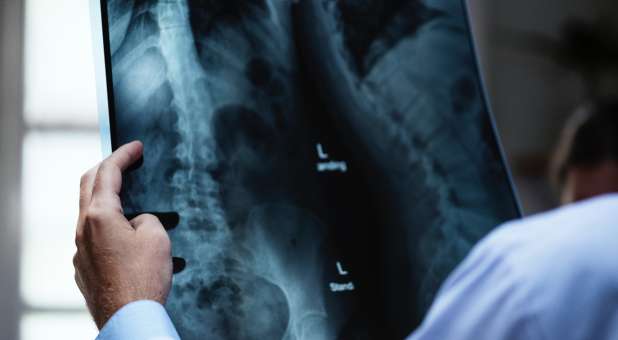Have You Heard About These 3 Health Privacy Concerns?
Citizens’ Council for Health Freedom (CCHF) is alerting Americans to three privacy issues they may not know anything about.
CCHF president and co-founder Twila Brase says these three health care news items are just a sampling of the many ways the government and the health care industry are attempting to use patient data—often without consent—for their own gain.
Emergency Contacts Predicting Patient Risk?
According to an article in Becker’s Hospital Review, researchers are attempting to predict a patient’s risk for various hereditary conditions from their emergency contacts. The team from Columbia University, Mount Sinai Health System and New York-Presbyterian analyzed 2 million EHRs from patients seen at three academic medical centers in New York. The researchers were able to identify 7.4 million familial relationships by reviewing standard emergency contact information provided by patients.
Then, the researchers estimated a patient’s likelihood of developing 500 hereditary conditions, such as Type 2 diabetes, obesity and celiac disease. The team reported that this next-of-kin information had previously “gone unused in research” and “these analyses provide a validation of the use of EHRs for genetics and disease research.” But Brase says EHRs should not be used to research patients without their knowledge, especially when they are providing emergency contact information for family members. The government-certified EHR mandate has enabled research like this on Americans without their consent.
The Next Pathway to a National Patient ID?
Healthcare IT News is reporting that several health industry groups say it’s time to tackle patient matching. A group of 33 organizations, including AHIMA, CHIME, HIMSS and others, is calling on lawmakers to make patient matching a priority by including language that “seeks to end patient safety issues related to patient matching” in 2019 appropriations bills.
But this call for “patient safety” is a pathway to the National Patient ID and the end of privacy. A “national patient matching strategy” is essentially the same as a National Patient ID, Brase says, but this phrasing makes the surveillance endgame and longitudinal linking of data less obvious to the American people.
Analyzing the Medical Data of 24 Million Veterans
Health Data Management reports that the Department of Energy is planning to use high-performance computing and artificial intelligence to analyze the EHRs and other data of more than 24 million veterans. The government claims this research is to improve vets’ health care by developing new treatments and preventive strategies for issues such as suicide prevention, prostate cancer and cardiovascular disease.
But Brase says government EHRs are again being used compromise the privacy of American patients—in this case, veterans who have fought for the very freedoms that are being taken away from them.
CCHF will soon release a groundbreaking book by Brase exposing how the government-imposed certified electronic health record (EHR) has negatively affected both doctors and patients. Available this summer and published by Beaver’s Pond Press, Big Brother in the Exam Room: The Dangerous Truth About Electronic Health Records will show how Congress forced doctors to install a data-collecting surveillance system in the exam room. It includes hard facts from over 125 studies and reports about the impact of EHRs on privacy, patient care, costs and patient safety. Brase’s extensively researched work also exposes how patient treatment decisions are controlled and tracked by the government-mandated EHR; shares specific steps back to freedom, privacy and patient safety; and communicates why Americans must act now. {eoa}
For more information about CCHF, visit cchfreedom.org, its Facebook page or its Twitter feed @CCHFreedom. Also view the media page for CCHF here. For more about CCHF’s initiative, The Wedge of Health Freedom, visit JointheWedge.com, The Wedge Facebook page or follow The Wedge on Twitter @wedgeoffreedom.














































